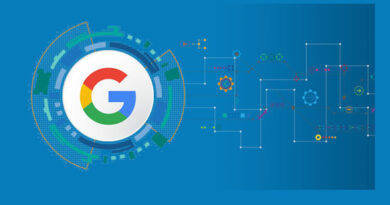What is the Use of Data Science for Digital Marketing .
Data science plays a significant role in shaping the field of digital marketing. By leveraging data-driven insights, digital marketers can make informed decisions, optimize marketing strategies, and drive better results. Here are some key uses of data science in digital marketing:
- Customer Segmentation and Targeting: Data science techniques, such as clustering and classification algorithms, enable marketers to segment their customer base effectively. By analyzing various data points, including demographic information, browsing behavior, purchase history, and social media interactions, data scientists can identify distinct customer segments. This information helps digital marketers tailor their marketing campaigns and messaging to target specific customer groups with personalized content and offers.
- Predictive Analytics and Forecasting: Data science enables digital marketers to predict future trends, customer behavior, and campaign outcomes. By analyzing historical data, machine learning algorithms can identify patterns and make predictions about customer preferences, purchase intent, and campaign performance. This information helps marketers allocate resources effectively, optimize marketing spend, and forecast the potential impact of different marketing initiatives.
- Personalization and Content Optimization: Data science enables digital marketers to deliver personalized experiences and content to their target audience. By analyzing customer data, including preferences, interests, and browsing behavior, marketers can create tailored marketing messages, product recommendations, and website experiences. Personalization improves customer engagement, increases conversion rates, and enhances the overall customer experience.
- Conversion Rate Optimization (CRO): Data science techniques, such as A/B testing and multivariate testing, help digital marketers optimize conversion rates. By conducting controlled experiments on landing pages, call-to-action buttons, website layouts, and other elements, marketers can identify the most effective variations that drive higher conversions. Data science provides statistical insights and analysis to determine the winning variations and make data-driven decisions to optimize conversion rates.
- Social Media Analytics: Data science enables digital marketers to extract valuable insights from social media data. By analyzing social media conversations, sentiment analysis, and social media engagement metrics, marketers can understand customer perceptions, track brand sentiment, and identify emerging trends. This information helps shape social media marketing strategies, identify influencers, and engage with the target audience effectively.
- Customer Lifetime Value (CLV) Analysis: Data science techniques help digital marketers analyze customer behavior and calculate the customer lifetime value (CLV). By understanding the value of each customer over their entire relationship with the business, marketers can make data-driven decisions regarding customer acquisition, retention, and loyalty programs. CLV analysis helps prioritize marketing efforts and allocate resources to maximize long-term profitability.
- Marketing Attribution: Data science helps digital marketers attribute the impact of different marketing channels and touchpoints on customer conversions and sales. By using advanced analytics models, such as attribution modeling and marketing mix modeling, marketers can quantify the contribution of various marketing efforts and optimize their marketing spend accordingly. This information helps allocate resources effectively and optimize marketing strategies for better ROI.
In summary, data science empowers digital marketers with valuable insights, predictive capabilities, and optimization techniques. By leveraging data-driven approaches, marketers can enhance customer segmentation, personalize experiences, optimize conversion rates, analyze social media data, calculate CLV, and attribute marketing impact. Incorporating data science into digital marketing strategies can lead to more effective campaigns, improved customer engagement, and better business outcomes.




